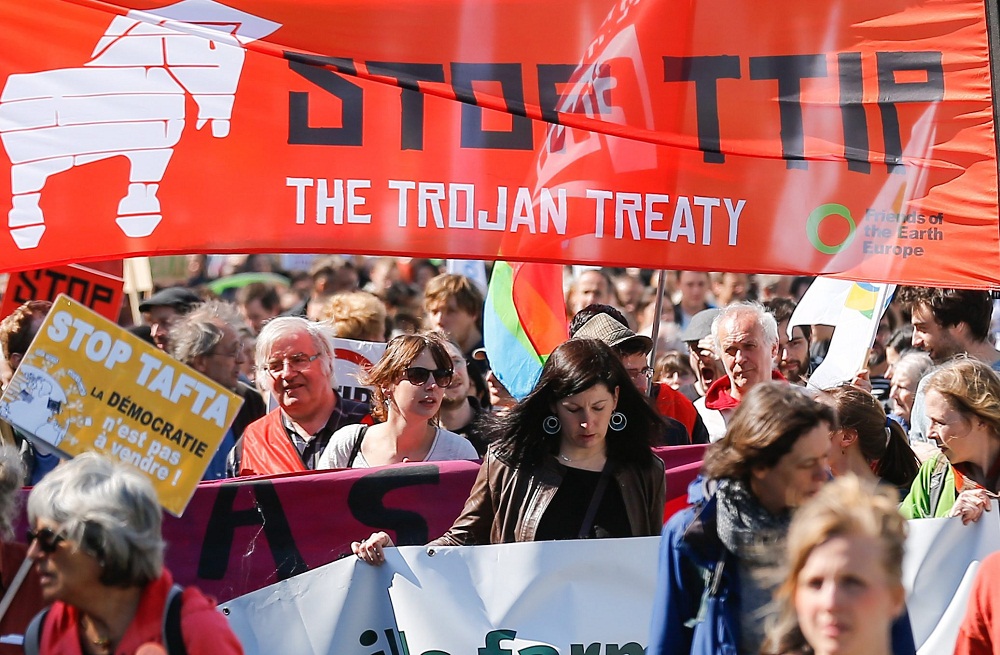A free trade agreement that is being negotiated between the European Union and the United States is an exceptionally important agreement that should contribute to the recovery of the European and American economies and it might be a starting point to define new, higher global standards, a conference in the Croatian parliament heard on Friday.
Negotiations on the Transatlantic Trade and Investment Partnership (TTIP) began in July 2013, immediately after Croatia joined the EU, and the ninth round of negotiations is being held in Washington at the moment.
The agreement aims at removing obstacles to trade (customs, unnecessary regulations, restriction of investment, etc.) in a wide range of economic sectors so as to facilitate the purchase and sale of goods between the EU and the USA.
If the TTIP becomes a reality, it will be the largest free trade agreement in the world. The EU and USA together make up almost half the world’s GDP and conduct 30% of the world’s trade valued at EUR 723 billion each year and EUR 1.8 billion a day. According to the London Centre for Economic Policy Research (CEPR), the agreement should at best increase Europe’s GDP by 0.5% ten years after it goes into force, which means almost 119 billion euro for the EU and 95 billion euro for the USA by 2027.
Speaking about the status of negotiations on the TTIP at the conference organised by the parliamentary Committee on European Affairs, Deputy Foreign Minister Josko Klisovic underscored that this was an exceptionally important agreement that should contribute to the recovery of the economies on both sides of the Atlantic and would also open new export and investment opportunities for Croatia.
Considering that the agreement has been met with criticisms, such as that it will enable international corporations to strengthen their influence to the detriment of states and would eventually lead to the lowering of European standards with regard to workers’ rights, environmental protection and food safety or that the European markets will be flooded with American GMO products and chlorinated chicken, Klisovic believes that that will not happen.
“Neither party will outwit the other. They both want good results for their economies and citizens,” he said.
The TTIP should facilitate simpler access to the US market, which is particularly significant to small and medium enterprises as the basis of the economy, Klisovic said, adding that regulatory chaos, doubling of quality controls and various certificates was one of the major obstacles to doing business and significantly increased costs. At the same time, companies would be exposed more to movements on international markets, he added.
Croatia’s trade with the USA amounted to 414 million euro in 2013.
The most controversial element of the TTIP is the Investor-state dispute settlement (ISDS), which is an instrument of public international law granting an investor the right to use dispute settlement proceedings against a foreign government.
However, Klisovic explained that that mechanism was part of almost all international investment agreements. Croatia has concluded 58 agreements on investment promotion and protection and each of them includes ISDS provisions, he said.
The TTIP should improve this framework to prevent possible misuse and to protect the rights of states to adopt laws and regulations in public interest, he said, adding that one idea is to establish an international investment tribunal.
In an effort to make the negotiation process more transparent, at the end of last year the European Commission published its negotiating mandate, which was supported by all EU member states and various documents are regularly published. Recently members of the European Parliament (EP) were allowed access to the EP’s ‘safe room’ to inspect confidential documents relating to the negotiation process but they cannot release any of the information. Also, consultations are held regularly with civil society organisations and other stakeholders.
Jean-Charles Van Eeckhaute, head of the European Commission Directorate-General for Trade, underscored that the TTIP would not only advance trade relations between the EU and the USA but would also strengthen the EU and USA’s position with regard to the Pacific region.
He stressed that the subject of the negotiations were not European standards, but rather technical obstacles to trade. We are not creating an internal market with common rules. It’s a trade agreement, he said.
Van Eeckhaute added that he hoped that the TTIP would be finalised during 2016, underscoring that it was more important to come up with a quality agreement rather than hurrying negotiations.
A member of the European Economic and Social Committee, Sandy Boyle, commented that the ISDS mechanism in its current format had been compromised because investors and their attorneys misused it to syphon huge damages from states.
He added that he too supports the establishment of an international investment tribunal.
